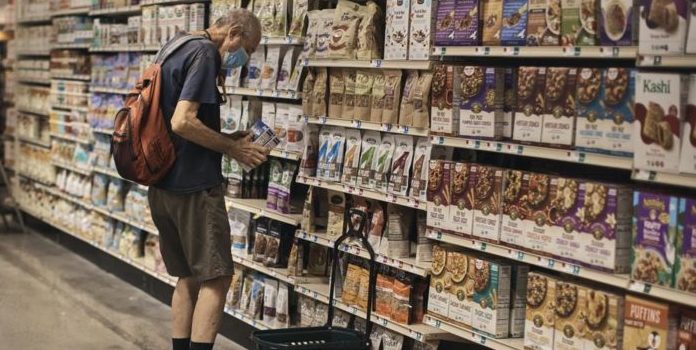(Bethany Blankley, The Center Square) – Americans should brace for and expect a recession this year, economists are warning, arguing the details of the latest jobs report are not a good indicator.
Even though the Federal Reserve has not yet forecasted a recession and is expected to cut the Fed funds rate in March, some economists are predicting a recession, with more layoffs expected to drive up the unemployment rate.
“There’s this very powerful and seductive narrative around a soft landing, and we’re just not seeing it in the data,” Andrew Hollenhorst, a chief economist for Citibank, told CNBC on Thursday. “Inflation is running too high.”
Despite a strong jobs report of 353,000 jobs added in January, he explained, what matters is what kind of jobs the data is showing. The labor market is not as strong as it seems, Hollenhorst says, because those who are employed are working fewer hours, and fewer full-time workers are employed.
“That’s the key to the economy — what happens in the labor market,” Hollenhorst said. “If the unemployment rate stays low, people continue to spend, the economy holds up.” But once unemployment increases, that is “the sign that we’re going to have a more material decline in the US economy.”
A recession could hit as early as this summer, he said. A recession “involves a significant decline in economic activity that is spread across the economy and lasts more than a few months, the National Bureau of Economic Research explains. It encompasses many factors, including real personal income, nonfarm payroll employment, employment as measured by the household survey, real personal consumption expenditures, wholesale retail sales adjusted for price changes, and industrial production, among others.
Economist David Rosenberg of Rosenberg Research points out that the employment data isn’t what it seems. He asked, “how is it that there has not been one fulltime job created in the United States since last February?” He says when you look at the nonfarm payroll survey and the workweek data, workweek hours are down -7% annually. … You have to look at how much time people are spending at work. You can argue that more companies are adding more people to their staff loads but yet they are cutting everybody’s workweek.”
After evaluating both payroll and workweek data, he said, “there’s been no growth in total labor input in the economy since November,” which is an indicator of a coming recession.
On top of that, consumers have taken on massive credit card debt. While consumer spending has increased, it’s been largely financed by debt, Rosenberg adds, noting that consumers are struggling to pay it.
According to Creditnews, Americans added a record $50 billion in credit card debt last quarter, bringing total credit card debt to a new all-time high of $1.13 trillion. Credit card and auto loan delinquencies are up, and “as far as consumer credit is concerned, the default cycle isn’t merely looming, it’s arrived,” Rosenberg wrote in a recent economic report.
The “hard landing” economic forecast comes after major companies have already begun layoffs, with the tech industry showing signs of trouble. Former CEO of Home Depot and Chrysler Bob Nardell warned more layoffs were coming because high-interest rates are “killing” middle and lower-market companies.
Companies that weathered covid-era lockdowns couldn’t survive high inflation and high interest rates, with major chains announcing bankruptcies, store closures and layoffs including Tuesday Morning, David’s Bridal, Sears, Foot Locker, CVS, Walgreens, Pizza Hut, Boston Market, and Macy’s, among others.

